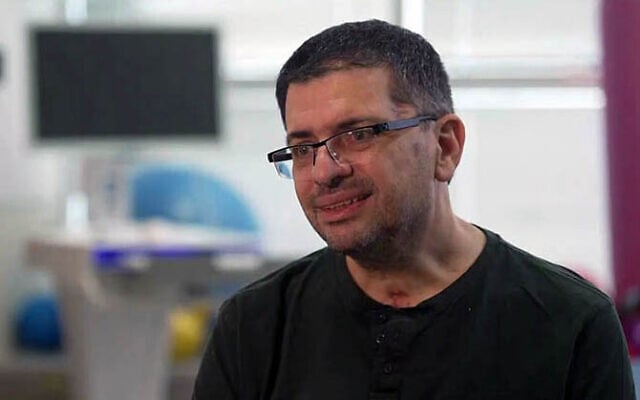It wasn’t until Adam Saparov, an intensive care doctor and friend of Bichovsky, recognized the trusted colleague.
By Vered Weiss
Yoav Bichovsky, a senior doctor at the intensive care unit at Soroka Medical Center in Beersheba, was wounded beyond recognition by an RPG in Gaza. Yet, he expresses a desire to return to treating patients.
Bichovsky, 47, volunteered on October 7 to fight Hamas’s invasion in the south and served in Gaza intermittently during the war.
On March 31, after three days of fighting in Khan Younis in Gaza, Bichovsky and two other soldiers were severely wounded by an RPG that struck their vehicle.
When he arrived at the hospital unconscious, Bichovsky’s colleagues took his fingerprints but didn’t recognize him because his injuries were so extensive.
It wasn’t until Adam Saparov, an intensive care doctor and friend of Bichovsky, recognized the trusted colleague.
Amit Frenkel, who worked with Bichovsky, told Channel 12 news in Israel, “From the outside, it sounds very strange, but you must understand, when a wounded person arrives, in the first few minutes or even the first few hours, sometimes it’s very hard to identify him. I won’t get into the graphic details, but it’s hard sometimes.”
Professor Alexander Zlotnik of the anesthesiology division at Soroka said that another reason Bichovsky wasn’t recognized at first by his fellow doctors was emotional: “It was some kind of blackout in my brain—I wasn’t ready to accept it.”
Anesthesiologist Shachar Negev recounted, ” [Dr. Saparov] told me, ‘Shachar, it’s Bichovsky, look at his fingers, his jaw, his nose,’” recounted anesthesiologist Shachar Negev. “I told him: It’s not him. I don’t see it.”
The team at Soroka Hospital decided to inform Bichovsky’s wife that he was severely wounded rather than having her wait for the military’s “knock at the door.”
Professor Moti Klein of Bichovsky’s unit told Channel 12 that the medical team debated whether they could treat him without being emotionally affected. Still, ultimately, they decided it was best to give him medical care themselves.
Moti Klein said, “The thought that he would be treated somewhere else was harder to stomach than that we would treat him.”
Since then, Bichovsky has been on the gradual road to recovery and was able to send a WhatsApp message on May 5th.
Although his colleagues initially worried whether he would be himself again, the doctor is making progress daily and is currently developing speech and motor skills at the Loewenstein Hospital Rehabilitation Center in Ra’anana.
Speaking softly after one of his vocal cords was partially paralyzed by the RPG attack, Bichovsky says he wanted “to return home, to eat like a human being, regular things. To be a dad.”
When asked if he wanted to return to treating patients in the hospital, he responded, “Yes. It’s amazing work. It’s an amazing life.”
